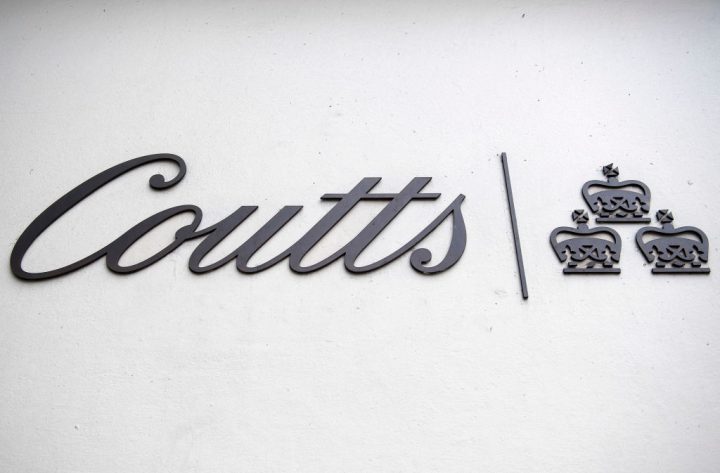The outrage over the cancelling of Nigel Farage’s bank account has uncovered the lengths to which elements of the British establishment will go to mould society in their ideological image. Those who speak out publicly in support of unfashionable causes – whether Brexit, gender self-identification, Israel or abortion – now face being cancelled not just on social media but on an institutional level as well.
It is eerily evocative of China’s notorious ‘social credit system’, a state-sponsored credit rating and blacklist that awards greater freedoms to those citizens and businesses who behave themselves and fall in line with their rulers. There but for the grace of God?
The total digitisation of transactions means that every citizen can be tracked via their spending patterns
Questions remain, however, over just how far the banks would go to deprive their ideological opponents of their liberty. Just imagine Farage’s disenfranchisement if Coutts had been backed up by the other big financial institutions.
This all brings us on to the matter of cash. The creeping digitisation of currency accelerated during the Covid pandemic and has continued unabated, with many business now running ‘cashless’ operations.
I no longer carry banknotes in my wallet, and on the few occasions I have paid with cash in shops, I have been greeted with bemusement. At one restaurant, the waiter needed to disappear into the back offices for 20 minutes before he emerged brandishing a saucer of change like some relic.
Given how far cash has fallen out of use, and the growing demands for it to be mothballed altogether, the Farage affair is even more concerning. The total digitisation of every transaction means that every citizen can effectively be tracked via their spending patterns. It would be impossible to leave the banks’ radar, and consequently that of government.
This is a far more intrusive monitoring system than identity cards, or even facial recognition technology. And it is especially sinister because it could be weaponised against those, like Farage, who fall foul of the approved set of ideological positions promoted by the faceless elites who seem to run these institutions.
As Andrew Neil points out in today’s Daily Mail, we do not know who at Coutts took the decision to cancel Farage, or who compiled the dodgy dossier, mainly stuffed with references to articles in the Guardian and Independent, that informed it. All we can identify is the ideological force that animated them. And, a little like AI, once such precedents have been set, we don’t know where it will end.
Take cash out of the equation entirely and the vast data pool that maps the spending habits and personal affairs of every citizen will be complete. This data, clearly, is hugely commercially valuable, and also of great use to government. How will it be used? How will it be sold? What draconian policies may it facilitate?
Imagine that another pandemic comes along. This time there is no cash and an infrastructure of monitoring and control has quietly grown up around the banking system. The prime minister of the day announces total lockdown; all our debit cards and credit cards are disabled, erasing liberty at a stroke.
Then he announces that only state-approved cafés, which conform to health regulations, can be patronised, and enforced this by enabling transactions only in those establishments. People who are found to be protesting against petty lockdown laws, by sitting on a forbidden bench or visiting a dying relative for instance, could be fined automatically or have access to funds restricted.
The level of control is chilling. If it wasn’t for the Covid years we’d be laughing it off, but nobody is laughing any more.
These are perhaps the most compelling reasons to fight the abolition of cash. There are many others. Those with blindness or other disabilities, who find even simple technological interactions challenging, will suffer most. Victims of domestic abuse will be unable to squirrel away a secret pot of money. Old people, who often suffer from loneliness, will struggle to adapt, with many becoming increasingly alienated from society. They won’t even be able to slip a fiver into a birthday card any more.
Nobody know how far the banks will go. But the Farage debacle shows that they are already going further than anybody imagined. Precautions must be taken to protect our basic freedoms before it is too late.







Comments